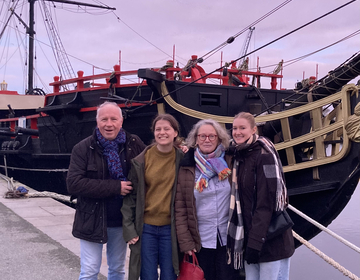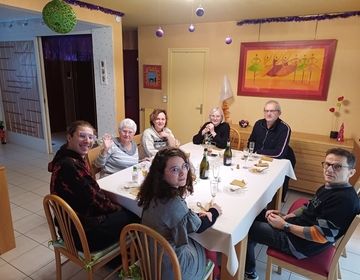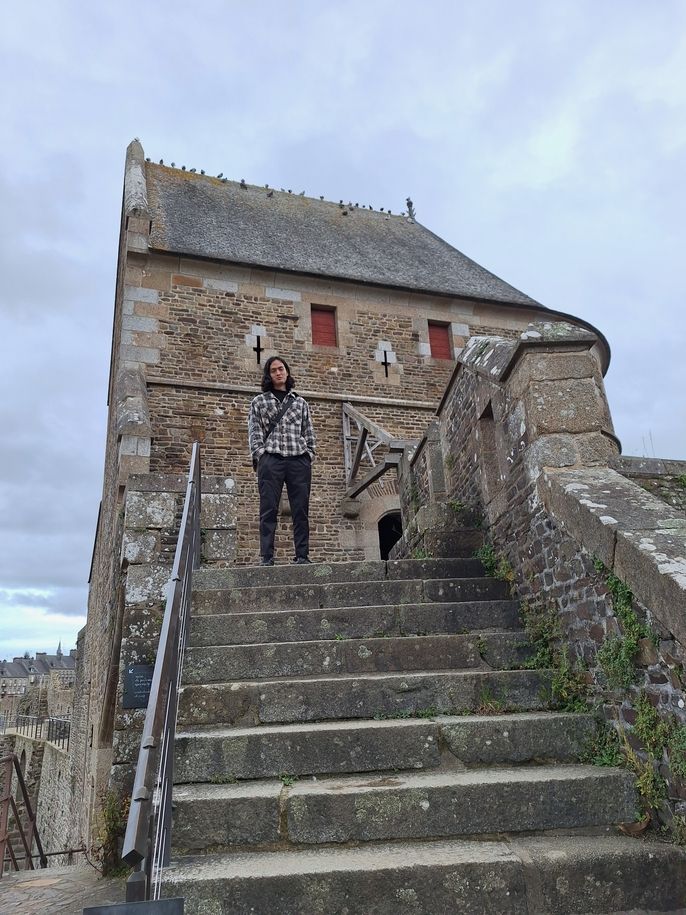At Home In France
When I came to Rennes for my study abroad, I thought my biggest lessons would come from my university classes—grammar, vocabulary, literature, all that. But honestly, some of the most eye-opening moments have happened right at home with my host family. They’re French with Cambodian roots, and living with them has given me this unexpected chance to see what family life really looks like here, especially between parents and young kids. It’s one thing to read about French education or family culture in a textbook, but it’s something else entirely to watch it unfold at the dinner table.
Their daughter is six and just started primary school, so every day I get little glimpses into how kids here learn to read, write, and count. Her parents are so involved—it’s not just “school is for learning, home is for resting.” They talk about her assignments, check her progress, and even turn small things like reading before bed into mini lessons. It’s such a different rhythm from what I’m used to, and it made me realize how early independence and structure are encouraged in France. There’s something really wholesome about how the whole family is part of that learning process, not in a stressful way, but almost like teamwork.
Another small but revealing moment happened in front of the television. My host family loves watching Korean dramas and animations, which the daughter finds captivating. Yet she often asks her mother to read the French subtitles aloud or switches the audio to French dubbing. At first, I found this curious—after all, French is her first language. But I soon realized that, as a beginning reader, she’s still learning to connect the written and spoken word. It dawned on me that despite her fluency, she too is a language learner—just like me. That realization changed how I saw my own experience. I had been so self-conscious about my accent, about fumbling for words at dinner, about not sounding “French enough.” Watching her navigate her own learning journey, free of embarrassment and full of curiosity, gave me unexpected courage. We were both learners, simply at different stages.
Finally, living with a French-Cambodian family has opened my eyes to a different kind of patriotism—one that embraces multiplicity rather than uniformity. My host parents were born in France, yet they told me candidly that they consider themselves Cambodian first, French second. This perspective fascinated me, especially coming from the United States, where patriotism often implies an all-encompassing national identity. In France, I’ve found a quieter, more nuanced sense of belonging: people can carry multiple cultural identities without feeling the need to choose one over the other. In my host family’s home, the aroma of Cambodian dishes mingles with French phrases, and both coexist comfortably. Their household feels like a living example of how cultures can blend without losing their distinct colors.
This experience has taught me that “home” isn’t just a place where you live—it’s where you learn how to belong. Observing my host family’s dynamic reminded me that relationships, whether between parents and children or between hosts and students, thrive on empathy and mutual learning. Their openness has not only helped me integrate into French life, but also redefined what it means to feel at home abroad. For other students preparing to study in France, I’d say this: the most valuable lessons might not come from lectures or museums, but from quiet evenings in your host family’s living room—where love, language, and identity meet over a bowl of rice and a French-dubbed cartoon.
Haoyang Liang
Furman University
CIEE-Rennes Liberal Arts Fall 2025
Related Posts

Adapting to Life in a Second Language
My plane landed in Rennes four weeks ago, on the morning of January 9th. I’d spent my last three nights in the United States sleeping on the floor of my... keep reading

History in France
For those interested in history or who just enjoy being around history, Rennes is the place to be. In just my first week in Rennes, just walking around the City... keep reading

French Conversations and Discussions
There are a lot of things that I thought I was prepared for before arriving in Rennes. I was excited to try new food, eager to meet new people, and... keep reading

